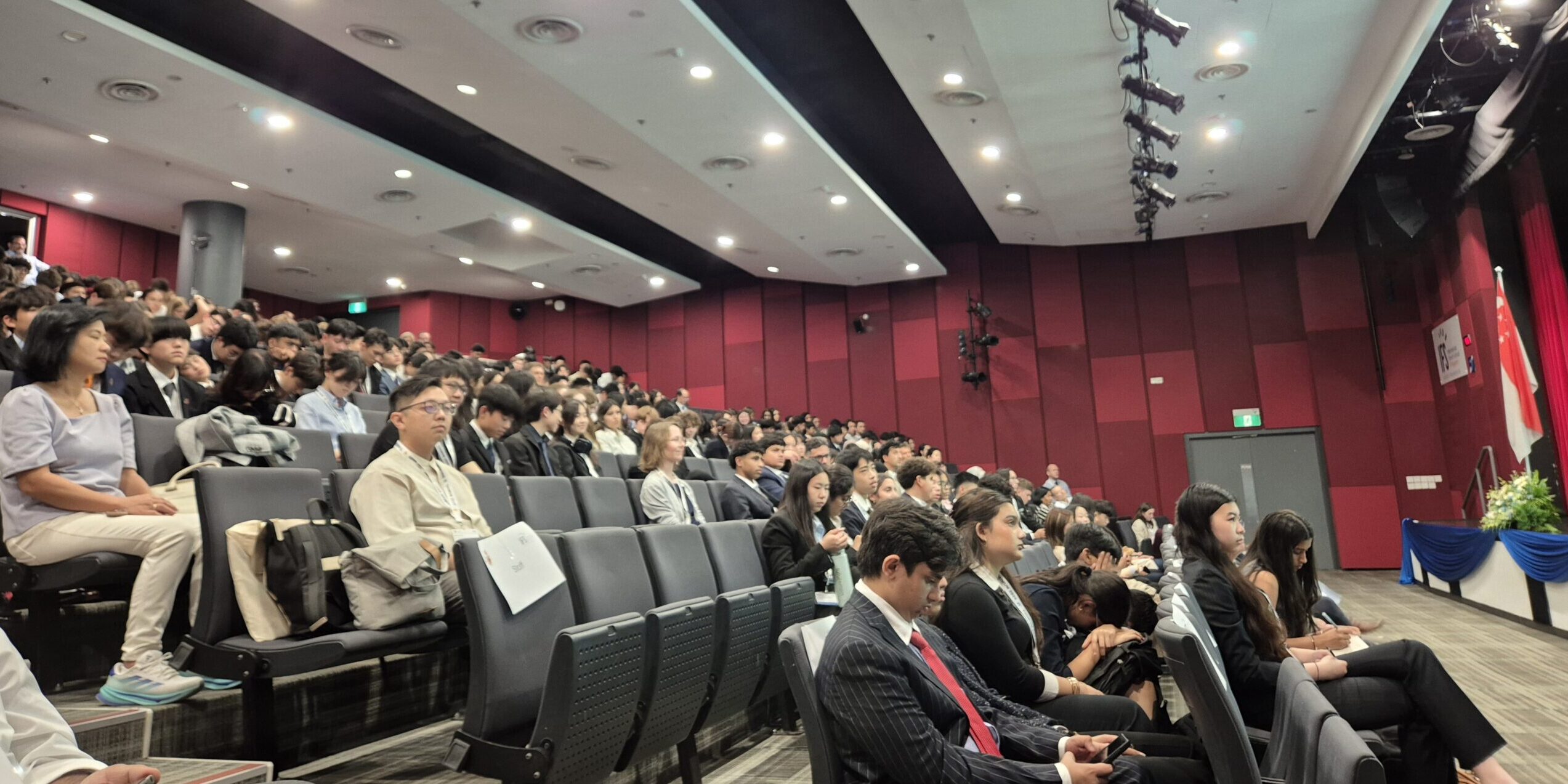The Opening Ceremony Rundown:
Speakers and Calls to Action
By Kendra Wuisan
Photography by Kendra Wuisan, Vriddhi Shah, Lola Butler, and Annaëlle Huang
Over 400 students, from 26 schools and 13 countries, all gathered in the International French School (IFS) auditorium. After an eventful first day of acquaintance and diplomacy, the opening ceremony commenced, consisting of inspiring speeches. In alignment with this year’s conference theme of “Impact of AI on Humanity,” speakers imparted resonant messages and calls of actions to attendees—situating delegates at the forefront, both within the conference and the future.
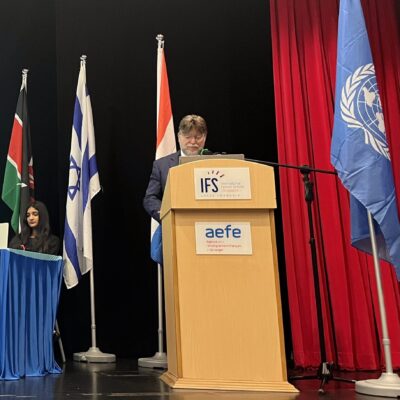
First, IFS principal Mr. David Binan provides a warm welcome, thanking all for being present at the conference. In relevance to the theme, he quotes António Guterres, Secretary-General of the United Nations: “The fate of humanity must never be left to the ‘black box’ of an algorithm.” By recognizing the “radiant possibilities” that AI has on education, he however reminds those listening that there are also risks of “uniform thinking and dependency.” Thus, by acknowledging his role as an educator, he makes a pledge: “Our role… is to help you master the tool, not be mastered by it.”
“The fate of humanity must never be left to the ‘black box’ of an algorithm.”
THIMUN Board of Directors Member, Ms. Carol Berenbaum, takes the podium afterwards. In her speech, she references the origin of the United Nations (UN). According to former UN Secretary-General Dag Hammarskjöld, the organisation’s intentions are “not to take mankind to heaven,” rather “to save humanity from hell.” Given the changing times, particularly with AI’s prominence, Ms. Berenbaum urges delegates: “It is your mandate to bring back those original goals of the UN,” as the leaders of tomorrow.
“It is your mandate to bring back those original goals of the UN.”
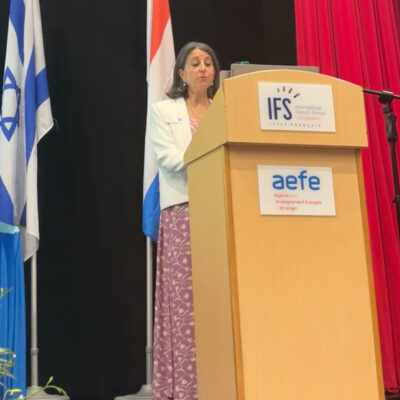
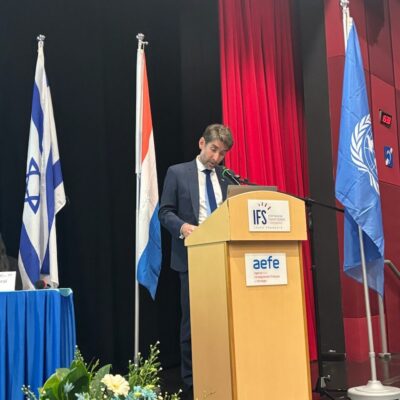
Following Ms. Berenbaum’s address, His Excellency Mr Stephen Marchisio, Ambassador of France to Singapore, takes the stage. He references the concept of multilateralism, which France upholds, whereby three or more states work in cooperation with one another to achieve a common goal. As listeners, we can reflect on how we can apply such concept, both in adopting multilateralism within our committees and being more compromising in our day-to-day lives.
Subsequently, the ceremony’s keynote speaker, Ms. Lianne Dehaye, Senior Vice President at Chemin AI, begins her speech. The audience learns about AI technology’s origins and the rapidity of innovation. In acknowledging the efficient benefits that artificial intelligence can have for society as a “voice for good,” Ms Dehaye also references the downsides. She warns of over-dependency in the educational field and possible privacy breaches of medical information. Thus, it becomes critical that the youth “identify actions… to do today, to create the tomorrow that [they] want.”
“voice for good”
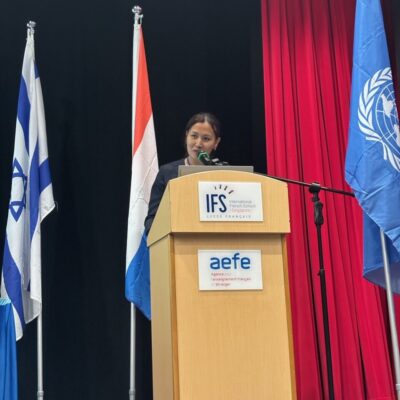
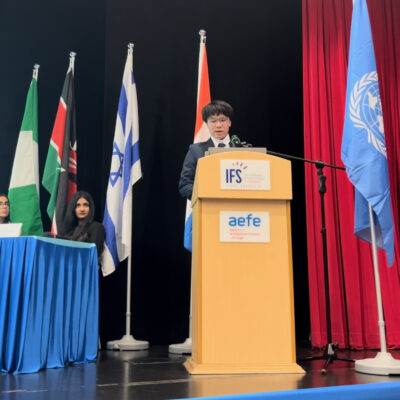
Finally, the conference’s Secretary-General, Geoffrey, rises to the podium. He reminds delegates of the value of MUN and how the skills that are honed in the following days can be applied far after. “Each resolution you pass, each amendment you submit, and each partnership you form, reflects the kind of world you wish to inherit.”
“Each resolution you pass, each amendment you submit, and each partnership you form, reflects the kind of world you wish to inherit.”
Thus, with five inspiring addresses, our role becomes all the more clear. As we navigate societal transformations in technological innovation and critical thought, locating our place in the world is crucial. As members of the young generation, we can be changemakers. Our approach, however, holds utmost relevance. As we strive to improve our surroundings and create environments to be proud of, selecting the values we reflect in our work is imperative.
To quote Ms. Dehaye as she closed her address: “Choose compassion over convenience… equity over efficiency, humanity over obligation, and wisdom over speed.”


